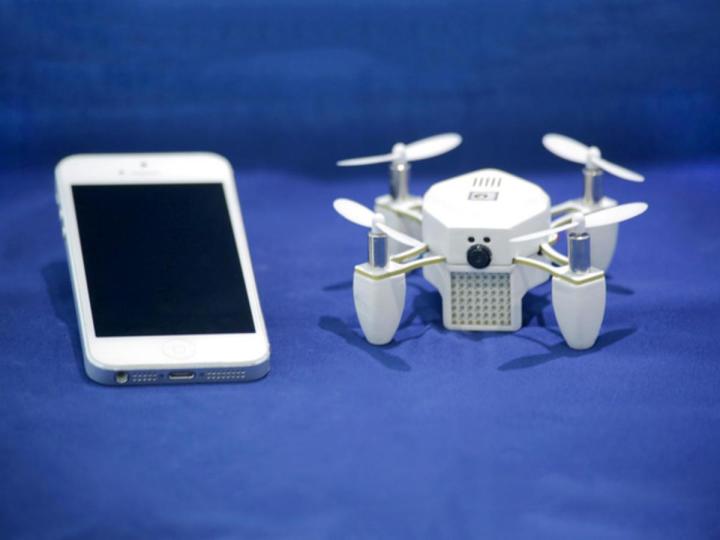
The Zano drone campaign – Europe’s most heavily funded Kickstarter project to date – crashed and burned last month, taking £2.3 million ($3.5m) of investors’ money with it. Launched at the end of 2014, its 12,000 backers loved the idea of “an ultra-portable, personal aerial photography and HD video capture platform [that’s] small enough to fit in the palm of your hand and intelligent enough to fly all by itself,” but design challenges and other issues led to the project’s collapse.
Mark Harris – a freelance writer for publications such as the Guardian and the Economist – said in a post that Kickstarter has asked him to “uncover the story of Zano” and help the project’s backers by finding out exactly what went wrong.
Harris said he plans to “lay out the progress of the project, from start to finish; to discover what happened to the over £2m in funds pledged; and to answer the questions of whether Zano’s creators could have done anything differently, or made mistakes that future Kickstarter projects might avoid.”
He’ll also investigate Kickstarter’s role in the project and look at “whether it could have served Zano’s creators or backers better throughout.”
Describing the commission as “unusual,” Harris said the main audience for the work will be the project’s 12,000 backers, though the piece will also be made publicly available.
Coming just days after Kickstarter published a study that showed only nine percent of campaigns on its crowdfunding site fail, this latest move by the company will look to some like part of a concerted public relations push aimed at demonstrating that it takes the matter of failed projects seriously.
Harris has been paid up front for the piece, but he insists he has full editorial control over the final article. With this in mind, Zano’s backers will be hoping for a full and honest account of what went wrong, which could potentially lead to the uncovering of some awkward truths for Kickstarter about its way of doing things.
In comments to the BBC about failed campaigns, the company said, “It’s OK for Kickstarter creators to take on big ideas and fail, but we expect transparency and honesty along the way. The backers of the Zano project deserve a full account of what happened, so we’ve hired Mark to produce an independent report.”
The company said it expected Harris’s work to also be useful for Kickstarter’s wider community, “especially hardware creators tackling ambitious projects. Transparency around the ups and downs of the creative process helps us all build a more creative world.”
Harris plans to publish the results of his investigation by mid-January.


